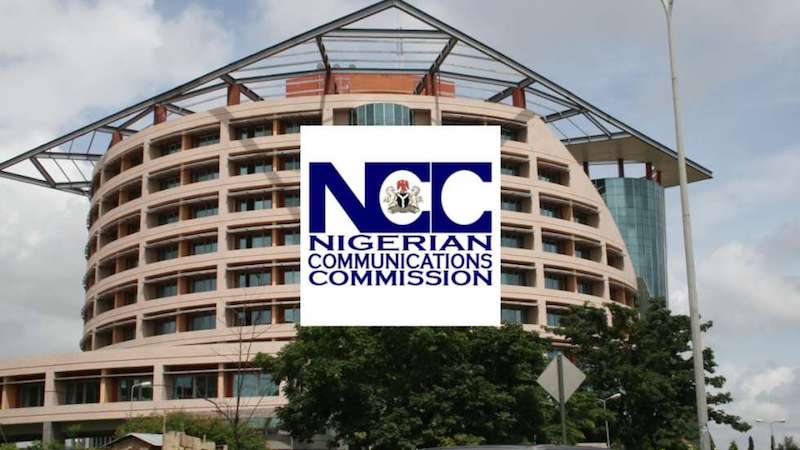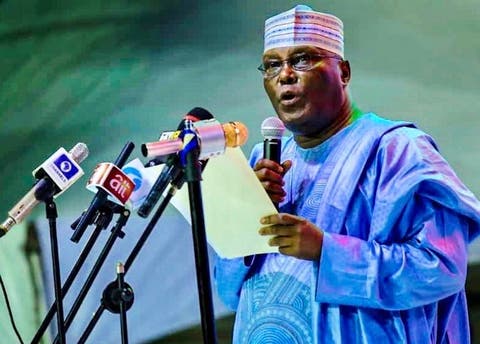
By Waziri Adio
Most of the things that ail Nigeria today have an economic underpinning or at least an economic dimension. And Nigeria’s economy, to put it mildly, is not in a good place right now. Underlying economic conditions in turn compound the other growing ailments, and the logical consequence of the devastating combination of both cause and effect is Nigeria’s current dire state. Fixing Nigeria’s plunging economy thus provides the most pragmatic pathway for stabilising then revitalising the country. Healing the economy is our most urgent task.
There is no better time than the electioneering/transition period to begin the uncomfortable task of not just wrestling with the health of our economy and our country but also for undertaking proper diagnosis and embracing right-headed prescriptions, including necessary but painful lifestyle changes and adjustments. Little of that is happening now; and little of it is being proposed.
The leading candidates are skirting the main issues, speaking in general terms, dishing out promises by the second without bothering to show us the cost implications, where they will find the money and what the trade-offs will be. In fairness, our political campaigns have always been more about words than numbers. Our politicians, over time, seem to have taken too seriously Mario Cuomo’s famous saying that ‘we campaign in poetry but we govern in prose’.
But this is an unusual time. We don’t have the luxury of just indulging in the poetry of campaigns. Make no mistake about it, whoever wins the presidency next year will inherit a distressed economy, with a public finance wracked by low revenue, serious haemorrhage and suffocating debts. The proposed 2023 budget provides a poignant snapshot of the state of our public finance. The Federal Government has projected to earn N9.73 trillion as aggregate revenue next year, but it has also proposed to spend N6.5 trillion on debt service and N3.36 trillion on petrol subsidy for six months.
This means that the 2023 projected revenue (which may still fall short) will not be enough to cater for just two items: debt service for the whole year and petrol subsidy for just six months. This means that we will need to borrow to fully cover those two items and borrow everything we will spend on salaries, pension, overhead and capital.
Though this administration still has seven months to go and cannot be excused from the current state of the economy, it will be unrealistic to expect it to fix or reset our public finance and the larger economy in the little time left. This has to be the burden and the first order of business for the next administration, which unfortunately will not have much room for experimentation or error. It has to get it right, or we risk further meltdown. And this is why we need to take more seriously the search for evidence-backed diagnosis and sensible solutions.
Among others, two recent reports can help in this important search. Produced by the South Africa-based Institute for Security Studies (ISS), the first report was presented recently in Abuja at two events organised by ISS and Nextier, a Nigerian public sector advisory firm. Titled “Nigeria in 2050—Major Player in the Global Economy or Poverty Capital,” the report uses Nigeria’s past and current development indicators to project our country’s trajectory by 2050 when our population is projected to hit 450 million, the third highest in the world after India and China. The data and the modelling for the report benefitted from the open-source International Futures model developed by the Pardee Centre for International Futures of the University of Denver, Colorado, USA.
The report shows that on most economic and development indicators, Nigeria lags behind lower middle-income countries in Africa and lower middle-income countries globally, especially in terms of GDP per capita (PPP), life expectancy, infant and maternal mortality, education pipeline, access to electricity, tax-to-GDP, and government effectiveness. The report also highlights the high incidence of poverty and unemployment and posits that despite Nigeria’s youthful population the country is projected to achieve demographic dividends much later than its peers.
Using both current path and scenario analyses, the report submits that Nigeria can significantly change its development trajectory if it undertakes critical policy interventions in five sectoral clusters: government and security; demographics and human capital; basic infrastructure; agricultural revolution; and economic and export diversification. The result of the modelling shows that reforms in each of the five domains will, at different rate and pace, produce improvements in GDP and GDP per capita, and reduction in poverty. The researchers also created what they called the ‘Super Nigeria scenario’ where all the reforms in the five domains are undertaken simultaneously, an approach projected to produce an impact greater than the sum of its parts.
“Of the five intervention clusters,” states the report, “the Economic and Export Diversification (industrialisation) scenario has the most significant impact on development indicators, but in the short term, a revitalised agricultural sector will be the low hanging fruit to improve Nigeria’s human and economic development outcomes. Meanwhile, the Super Nigeria scenario, which combines all intervention clusters, shows that an integrated approach or policy coordination across sectors could yield a significantly brighter future for Nigeria.” The ISS on Nigeria report can be accessed at: www.issafrica.org.
The second report is by Agora Policy, a new policy think tank based in Abuja. (Full disclosure: I am the founder of Agora Policy.) Titled “Options for Revamping Nigeria’s Economy,” the maiden report of Agora Policy was produced by a group of economists who focused on four areas: Federal Government’s fiscal position, human welfare (unemployment and poverty), trade and investment, and monetary policy. The authors used datasets from 2011 to 2021 to track the health of the Nigerian economy over the decade.
What the authors saw was not pretty: an economy in ill- and failing health, wracked by slow and fragile growth, lean and narrow revenue/export base, bloated debts and deficits, constricted trade and investment, suboptimal government spending, and soaring inflation, unemployment and poverty. The report sounds an urgent note. It states that despite that Nigeria posted GDP growth for six consecutive quarters and that its economy remains the biggest in Africa, “many of the macro-economic fundamentals have worsened.”
This seeming paradox should worry all of us and rouse current and future managers to get into emergency mode to arrest what may become a freefall. The report advises: “Nigeria needs to undertake swift, bold and far-reaching reforms to halt the precipitous decline and the attendant negative impacts on citizen’s welfare. These reforms must be undergirded by inclusion, transparency and accountability.”
Data in the report shows that Nigeria has regressed on most socio-economic indicators in the period under review and that the country consistently underperforms its peers. Our public finance, for example, is all over the place. FG’s expenditure is not in lockstep with its revenue, resulting in spiralling and suffocating debts. According to the report, FG’s expenditure rose from N4.48 trillion in 2011 to N12.51 trillion in 2021, an increase of 179%. But FG’s actual revenue increased by only 81%, from N2.57 trillion in 2011 to N4.63 trillion in 2021. The gap, of course, is always covered by debts which leapt by 436% from N6.17 trillion in 2011 to N33.11 trillion in 2021.
The report maintains that FG’s domestic debt is understated by almost half as official figures do not include CBN’s advances to FG, which is called Ways and Means. As at March 2022, CBN’s advances to FG stood at N18.89 trillion, a jump of more than 7000% on the N265.7 billion of January 2014. (Last week, the Minister of Finance disclosed that Ways and Means is now N20 trillion and that President Muhammadu Buhari has given approval for it to be converted into debt instruments of 40 years tenor at 9% interest rate).
The Agora Policy report clearly shows that Nigeria has a debt problem, despite official strident but hollow claims to the contrary, especially with debt service becoming the highest expenditure component and debt service swallowing most of revenue. However, the report agrees with government’s preferred narrative that Nigeria has a revenue problem. FG’s revenue to GDP shrank from 8.2% in 2011 to 4.4% in 2019. FG’s tax take as a proportion of GDP is the lowest among its peers, and the lowest even in Africa.
In addition, the report shows that the significant increase in expenditure has not translated to improvement in human welfare, how unemployment and poverty are not only growing but have a disturbing regional, gender and spatial dimension, how debt service and petrol subsidy have been crowding out spendings on critical sectors such health, education, infrastructure and others, and how restrictive trade and monetary policies have negatively impacted exports, manufacturing, investments, job creation and overall development.
In line with Agora Policy’s commitment to finding practical solution to urgent national challenges, the report is replete with recommendations in its areas of focus. Some of these recommendations include the urgent need to end petrol subsidy and crude oil theft, to block leakages in revenue-generating agencies, to improve efficiency of tax collection, to expand the tax base and raise the rates of some taxes, to sell and concession some dormant or underperforming government assets, and to expand investment in critical infrastructure, especially through PPP.
Other recommendations of the report are: the need to improve coordination of poverty alleviation interventions among the three tiers of government and finetune job-creation strategies, to incentivise small and medium enterprises, to increase investment in education, especially technical education and market-facing skills, to remove restrictive and distortionary trade practices, to address cumbersome custom processes and corruption at the ports, to improve capacity of trade-related agencies and review Nigeria’s trade policy framework, to develop export and job creation pipelines especially through agro-processing and light manufacturing, to improve synergy between the CBN and other managers of the economy, to redefine exchange policy in a way that makes Nigeria’s current and future exports more competitive, and to prioritise inflation targeting and fully account for and end Ways and Means.
The report was produced with the support of MacArthur Foundation. It is the first of four reports supported by the foundation and designed to elevate discussions around policy options before, during and after the 2023 elections. The other reports are on security, gender and social inclusion, and transparency and accountability.
PS:
Soft copies of the report can be accessed from Agora Policy’s website (www.agorapolicy.org) or can be requested by email (info@agorapolicy.org).





